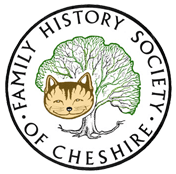
The names of the next set of speakers at the FHF REALLY USEFUL Family History Show [14th November 2020] have been released and they are:
Dr Judy Hill - Almshouses originated in early medieval England as places that provided care for the sick poor, usually attached to a monastery. Hospitality a Christian duty. The original focus on travellers and monks was extended in the 12th and 13th centuries to include lay people who were sick or feeble usually housed in separate establishments administered by monks and lay brothers. Church authorities encouraged these foundations and bishops were urged to see there were enough of them to cater for the need. This illustrated talk will look at the history of the British Almshouse which includes the difficult times during the Reformation to the continued vitality of the almshouse movement today. Judy's talk is called - British Almshouses
Alan Rushton - The Gentleman's Magazine was the first monthly journal to appear in Britain. It ran from 1731 until 1922. However, it's only of use to the family historian up to 1868, after which it became a literary magazine. Edward Cave, its originator, invented the obituary as we know it and these have been fully indexed. It was written for the country gentry with their interests in mind, so there is much local history. It's a must for some family historians, but not the place to look for agricultural labourers unless they lived to a great age or murdered people. The talk will show how it can be approached by the family historian, giving examples of the riches it contains in so many areas and is entitled - Gentleman's Magazines as an Aid to Family Historians
Dr Penny Walters - This session will explain how to merge established paper trails with DNA results. The biology and jargon of DNA can be overwhelming and people have had to learn this new branch of genealogy quickly. Through DNA testing, people receive ethnicity estimates, a heritage map, a list of people that DNA ‘matches’ (overlaps) with, and the opportunity to contact them and collaborate if both parties want to. Many people don’t know what to do with all that information, and just focus on their ethnicity result. The advantages and disadvantages of different DNA tests will be explored; a consanguinity chart will be provided; useful information for adopted people will be given; uploading to GEDmatch and utilising the MRCA (most recent common ancestor) information, and triangulation will be explained. Attendees will be shown how to add ‘useful’ DNA matches to their tree to inform a re-structured paper trail. A variety of ethical dilemmas will be outlined during this talk, which is called - Mixing DNA and the Paper Trail
Chris Paton - Whilst many of our ancestors fought, and in some cases, died during the First World War, there was another group of people deeply affected by the conflict on the civilian front. Thousands of British and British Empire civilians, present in Europe when war was declared against Germany, were rounded up and interned at a hastily converted racecourse on the outskirts of Berlin from 1914-1918. This talk will look at the fascinating story of those 5500 POWs, including over a thousand merchant seamen, whose only crime was to be in the wrong place at the wrong time. The talk is called - British Civilian POWS in World War One
With MANY more speakers and exhibitors being announced all the time keep checking back here or to the FHF Really Useful website for more updates.
FYI - the main FHF website can be accessed at the link below - https://www.familyhistoryfederation.com/
